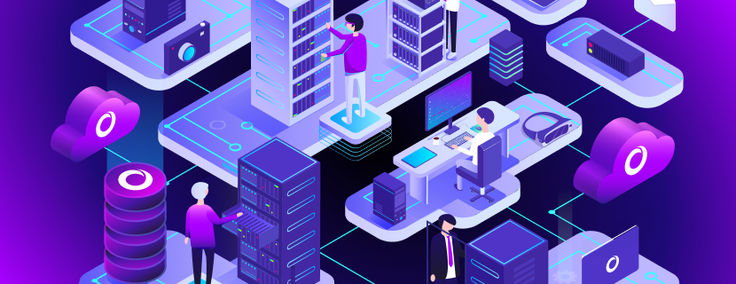
Organizations today face challenges in staying current with the technological advancements that keep them agile and competitive — something that’s particularly true when it comes to data management.
It’s no secret that data is an organization’s most important asset. A survey from Forrester₁ posed a key question to businesses:
“What have been the primary benefits your organization has experienced as a result of using data, data management, and analytics?”
The top responses centered around improved customer experiences (28%), data quality and consistency (27%), and customer insights (27%). SingleStore recently sat down with Noel Yuhanna, VP & Principal Analyst at Forrester for a webinar, “The Future of Data Management: A Thought Leadership Chat.” The session dove deeper into how the right data management architecture and strategy delivers the right data, at the right time.
Assessing Common Data Management Challenges
“Data management is the core for any successful analytical strategy,” says Yuhanna. “Without data, you can’t do AI, you can’t do business intelligence, you can’t do any of the blockchain, data lakes, database stuff. So data is important — but also, data management. Data management means data ingestion, transformation, governance, security and preparation.”
Yet as Yuhanna goes on to explain, more and more businesses tend to stitch various data management solutions together, each attempting to solve for its given function.
“Today, organizations have a wide variety of data management tools.… I’m sure in your organization you have a dozen or two dozen tools,” says Yuhanna. “And why is that the case? Data ingestion is separate, data catalog is separate, transformation is separate, governance and security is separate.”
The result? These platforms and tools don’t talk to each other — leading to a lack of standards and proprietary metadata, and siloed policies that leave businesses in a lurch. Even more, most organizations are behind the curve when it comes to data management architectures that support modern, real-time use cases, including:
- IoT Analytics
- Fraud Detection
- Risk Analytics
- Customer 360
- Data-Intensive Applications
Finally, distributed data spread across multiple clouds amplifies issues like performance, latency and quality. Fortunately for businesses, the outlook isn’t all grim. According to Yuhanna, adopting a global data management strategy and operations can help move organizations away from these issues to ensure the integrity, quality and reliability of their data.
How to Implement Successful Data Management Strategies With SingleStoreDB
Real-time analytics to flatten the curve of COVID-19
The notion that users expect data to be up-to-date and at their fingertips is nothing new — and this is true not only for consumers, but enterprises as well. Take truedigital, the digital arm of Thailand’s leading communications company. In the early days of the COVID-19 pandemic, the company wanted to get ahead of tracking the virus to prevent further spread. That meant real-time monitoring, geo-fenced areas, population density alerts and more.
The sheer amount of data truedigital needed to sort was massive; 30 million phones with 1 million movements/second. Their existing data management architecture couldn’t process the data quickly enough (or at scale) to deliver the output they needed. As SingleStore VP of Product Rick Negrin shares in the webinar, truedigital had the necessary data mesh and data fabric pieces in place, and simply needed a better strategy to make them work together.
By taking a closer look and adjusting at how they were ingesting, managing and distributing their data, truedigtal was able to provide real-time, interactive geospatial analysis and alerts to COVID-19 hotspots.
Get the full story: truedigital
Powering Customer360 insights for global field dashboards
Customer data platforms are often the first go-to solution for organizations looking to be more data driven. But this data has to be readily available and actionable for employees that rely on the information to make day-to-day decisions.
A great example of this is Dell Technologies’’ Customer360 platform. Spanning across several geographies, Dell was dealing with multiple data silos, touch points, product SKUs and sales people. These disparities meant Dell had a very limited view of what customers were doing. With a better data management strategy that included single-view dashboards with low latency streaming and high concurrency to support multiple users, the issue would be remedied.
By pushing all of their data into SingleStoreDB, Dell was able to build that real-time, single-view — empowering their sales team to have much better insight into their customers.
Simplifying data management architectures to power cybersecurity
The world’s data is growing at an accelerated rate because it doesn’t just originate from a few operating systems. It’s coming from nearly every device available, all of which send that data to the cloud or backup servers. Security company Armis takes all of this available data from devices and aggregates it in a central location, analyzing and processing the information for enterprises to identify any gaps in their security. Armis manages around 100 billion events per day, with some customers that have over 30 terabytes of data.
Armis wanted to power a customer experience that combined speed of ingest and the scale of data in real time, making it easy for users to drill down and get the information they needed to safeguard against security threats. Their previous data management architecture consisted of stitched-together, open-source technologies, which couldn’t stand up to rigorous data requirements — not to mention the added complexity and expense.
Using SingleStoreDB, Armis simplified their data management stack, building a system that allowed them to deliver on even their strictest real-time SLAs.
Get the full story: Armis Security
Don’t Miss the Future of Data Management
To hear more about the trends driving the next era of data management — and what your data architecture needs to stay competitive — watch our on-demand webinar, “The Future of Data Management: A Thought Leadership Chat.”
References
₁The Future of Data Management: A Thought Leadership Chat 2022










